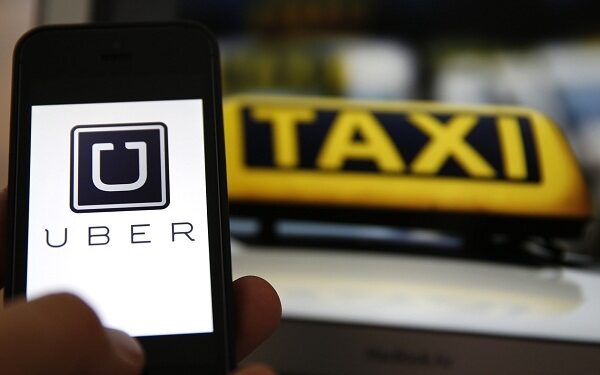When Uber Chief Executive Officer Travis Kalanick takes an Uber, he prefers a black car, the high-end service his company introduced in 2010. On this particular night in early February—Super Bowl Sunday—Kalanick is perched in the middle seat, flanked by two female friends. Maroon 5’s “Don’t Wanna Know” plays, and Kalanick shimmies. He clutches his smartphone as the three make awkward conversation. The two women ask when his birthday is, and marvel that he’s a Leo. One of his companions appears to say, somewhat inaudibly, that she’s heard that Uber is having a hard year. Kalanick retorts, “I make sure every year is a hard year.” He continues, “That’s kind of how I roll. I make sure every year is a hard year. If it’s easy I’m not pushing hard enough.”
There’s no question that it’s been a hard year for Kalanick and Uber—or really, a bad year compressed down into an awful three months. And it keeps getting worse. That pleasant conversation between Kalanick and his friends in the back of an Uber Black? It devolved into a heated argument over Uber’s fares between the CEO and his driver, Fawzi Kamel, who then turned over a dashboard recording of the conversation to Bloomberg. Kamel, 37, has been driving for Uber since 2011 and wants to draw attention to the plight of Uber drivers. The video shows off Kalanick’s pugnacious personality and short temper, which may cause some investors to question whether he has the disposition to lead a $69 billion company with a footprint that spans the globe.
In an email to staff Tuesday after publication of this story, Kalanick apologized to Kamel for treating him disrespectfully. “To say that I am ashamed is an extreme understatement,” Kalanick wrote. “My job as your leader is to lead…and that starts with behaving in a way that makes us all proud. That is not what I did, and it cannot be explained away. It’s clear this video is a reflection of me—and the criticism we’ve received is a stark reminder that I must fundamentally change as a leader and grow up. This is the first time I’ve been willing to admit that I need leadership help and I intend to get it.”
In December, Uber pulled its self-driving cars off the road in San Francisco after the California Department of Motor Vehicles said they were operating illegally without an autonomous vehicle license. In January, more than 200,000 people uninstalled their accounts, and #DeleteUber trended on Twitter, after the company was accused of undermining a New York taxi union strike protesting President Donald Trump’s refugee ban. On Feb. 2, Kalanick reluctantly left his spot on Trump’s business advisory council to appease the company’s liberal-leaning employees and users—not to mention its many immigrant drivers. On Feb. 19, a former software engineer at Uber wrote a blog post alleging that she had been propositioned for sex by her manager and that when she’d taken the issue to human resources, an HR rep had said that he wouldn’t be punished, in part, because he was a “high performer.” On Feb. 23, Alphabet’s autonomous car company Waymo sued Uber and its self-driving car company Otto, accusing an Uber employee of stealing trade secrets by downloading 14,000 files onto an external hard drive. On Monday, Uber’s head of engineering resigned after the company said it learned that he had faced a sexual harassment complaint at Alphabet, his former employer. He denied the allegations.
Bloomberg.com
VIDEO: Uber CEO Argues With Driver Over Falling Fares
ADVERTISEMENT






